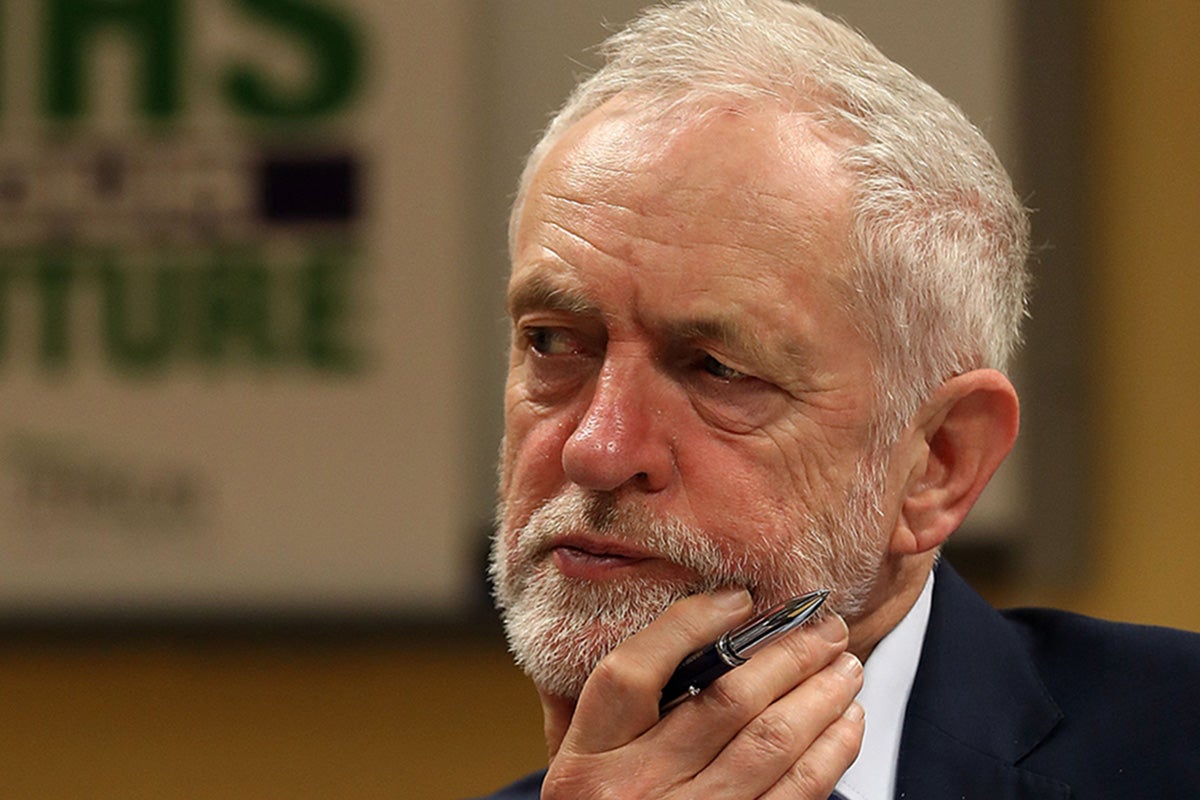If the Tories don’t get their house in order over Carillion this could be Corbyn’s watershed moment
Traditionally, voters view Labour as having a heart and the Tories a head. If they judge the Tories as incompetent and incapable of standing up to their big business friends as May has promised, this could turn around


“This is a dangerous moment,” one senior Conservative MP admitted as we discussed the collapse of the construction and outsourcing giant Carillion. He meant it was dangerous for the victims among Carillion employees and sub-contractors, but also for the Conservative Party.
Theresa May and her ministers will not escape blame by pointing out that a third of Carillion’s public sector contracts were awarded under Labour. The Tories have been in power for almost eight years. In 2010, they got away with unfairly blaming the previous Labour government for a global economic crisis because it happened on Labour’s watch. Voters know that Carillion imploded on the Tories’ watch, and that the May Government handed it more contracts when it was already in trouble.
They also know that Jeremy Corbyn’s hands are clean. Politicians of all stripes often answer the media’s “what would you do?” question by saying: “We wouldn’t start from here.” But Corbyn’s Labour can do this legitimately on Carillion. Corbyn was a critic of New Labour’s use of private contractors. The current crisis allows him to marry his ideological opposition to a dramatic real world story. It dovetails perfectly with his longstanding criticism of the NHS using private companies for clinical contracts worth £3.1bn in 2016-17, up from £2.4bn the previous year.
For good measure, the Government is rightly being accused of bailing out Virgin Trains and Stagecoach after reducing by three years the length of their franchise to run the East Coast main line. Chris Grayling, the Transport Secretary, has questions to answer on both this and Carillion. The common theme may be aggressive bidding for state contracts, leaving the Government to clear up the mess when companies run into trouble. It all adds up to a very dangerous cocktail for the Tories.
Tony Blair sometimes used his willingness to embrace private providers to define himself against his party and the trade unions. Struggling for a headline when he launched Labour’s 2001 election manifesto, Blair said: “There should be no barriers, no dogma, no vested interests that stand in the way of delivering the best services."
There was a more pragmatic case for it and Gordon Brown made it before Christmas when he launched his memoirs. “We are knocking schools down in my former constituency built 50 years ago by private contractors with public funds that were totally useless,” he told a Fabian Society event with ITV’s Robert Peston. “The purpose of it was to avoid the mistakes that were made in the old days, when it wasn’t the direct works department building these schools, it was private contractors making quick profits by doing shoddy work that was never properly supervised. When things went wrong, it was us who had to pay the bill, and not them.”
The former Chancellor and Prime Minister admitted that public-private partnerships allowed Labour to build new hospitals and schools quickly on taking power in 1997. He insisted the principle was right and that the policy did not amount to a “sell-out” or “privatisation”. But, aware of criticism that it resulted in huge post-dated bills for taxpayers, Brown said he could not defend every contract and conceded the system must be reformed. No one would deny that after Carillion’s demise.
The goal of transferring some risk to the private sector was understandable, but both Carillion and the East Coast line show that the buck stops with the Government, and the taxpayer. For years, ministers have talked about ensuring that smaller firms get a bigger slice of the estimated £250bn market for external suppliers, about a third of public spending. But the big contracts remain dominated by a handful of giant companies, sometimes with cosy relations with Whitehall. In the age of austerity, civil servants have tried to squeeze costs, but perhaps the pendulum has now swung too far: cheapest is not always best.
Corbyn’s pledge to end “rip-off privatisation policies” that fleece the public of billions will undoubtedly resonate with voters. Labour is not promising to take all Public Finance Initiative contracts into state control, merely to review them. It might use other routes such as a golden share.
The public might well prefer such an approach. Traditionally, voters view Labour as having a heart and the Tories a head. If they judge the Tories as incompetent and incapable of standing up to their big business friends as May has promised, this could indeed be the “watershed moment” Corbyn claims.
Ministers are desperate to avoid another Carillion and have today put the contractor Interserve on financial health watch. They need to get ahead of the curve and ensure lessons are learnt. That must mean ordering an independent inquiry into Carillion’s collapse, including whether the Government continued to award contracts to an ailing company in the hope of avoiding the very catastrophe that has now happened.


Join our commenting forum
Join thought-provoking conversations, follow other Independent readers and see their replies